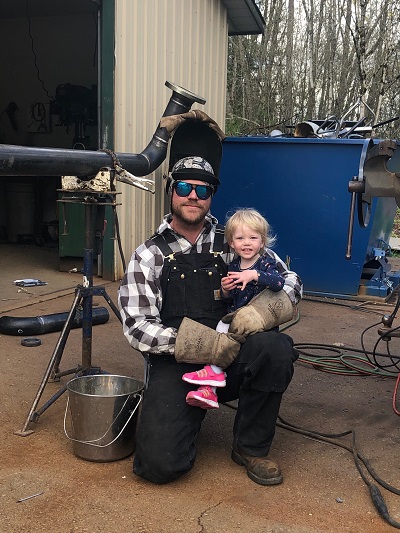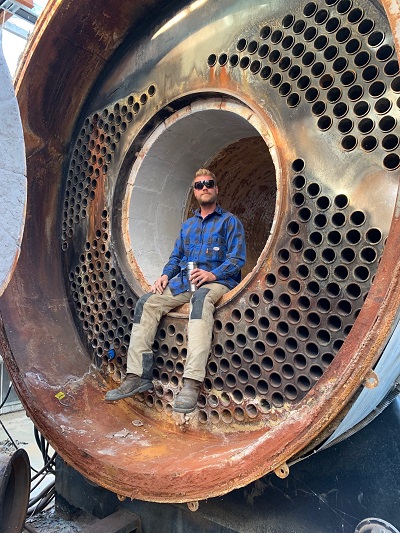
Ryan Nierop (Instagram @r_nierop) is a prominent rig welder and ticketed pressure welder in Vancouver, British Columbia, Canada, with 15 years of experience (above). Growing up, he spent a lot of time working alongside his father, also a rig welder. It came naturally to follow in his father’s footsteps. Many welding students in classes across the United States and Canada have aspirations of graduating, buying a rig and becoming a rig welder. But it’s not easy and not for everyone. Nierop shares some words for those out there looking to enter the field.
What does a day on the job look like for you?
My day-to-day work is always different, from looking and pricing jobs to doing the work. Most of my work is pipe welding, pressure vessel repairs and boiler retubes
Are you working the standard 40-hour workweek?
Every job I do is different. A lot of jobs have a time-sensitive deadline, so I will have to work as many hours as it takes to get everything done. Most of the time, I am working well over 40 hours a week. If you are looking to work a regular 40-hour-a-week job, this may not be the business for you. If you are looking to make an excellent living for you and your family, you have to put in the time.
Do you travel a lot in your line of work?
I have been blessed to be able to work fairly close to home most of the time. However, there are times when I do have to travel pretty far for work.

What sort of training certifications did it take for you to get into the industry?
I am a journeyman and Red Seal welder certified in several shielded metal arc welding (SMAW) and gas tungsten arc welding (GTAW) procedures, and also certified in structural steel welding. A lot of the welding procedures I have are mostly specific to British Columbia, such as PWP7, PWP10, PWP11 and also Canadian Welding Bureau (CWB) SMAW in all positions.
How has your rig evolved from when you started?
My first truck was a 1993 Ram 150 regular cab with a V6 on propane. Then I upgraded to a 2001 Ram 3500 with a welding deck. After that truck, I knew I would also run a deck welding rig. I took the deck off that 2001 Ram and put it on a new 2010 Ram 5500. I ran that for nine years until I purchased my current truck, which is now a rolling shop. I had the deck custom built. Everything I have ever wanted for the past 15 years is now on it. With my first rig, I made my welding reels and had limited tools. Now, I’m running five state-of-the-art AlumaReelTM units. As far as welding machines go, I’ve always run a Lincoln Electric on my truck.
What are the biggest strengths needed to make it in the industry?
Be willing to put in the time and practice to keep your skills sharp. Welding is not something that can be easily mastered. The best welders are ones who have put the time and effort in, and there’s no quick way about it. Also, being able to handle pressure — you will be put in high-pressure situations and you will have to be able to handle them.

How do you balance work life and family? Any tips for someone looking to get into this trade who has small kids?
I have small kids, and I think the biggest thing is when you are home, you make it count. Engage and do something with your kids. As you get older, you realize you can’t get time back, so you have to make sure you make time for your family no matter what.
What are the best things that have come out of your decision to be a welder?
Being able to make almost anything I want to make. From a smoker or a BBQ to my kids' playset in the yard, the sky’s the limit. I've made so many lifelong friends that I would have never met if it wasn't for this trade. Welding is a very rewarding way to provide for my family. It's honest work, and it’s something I’m very passionate about.
Any advice for those who aspire to be like you with your rig?
I would say before you invest in a rig to work for another rig welder first, as a helper. That way, you can learn the ropes and understand what it’s like to run a rig. Being a rig welder is a lifestyle and has to be something you are very passionate about — set goals for yourself of what you want and what it’s going to take to get there.
This article was written by Stephanie Hoffman-Wedding, program manager of workforce development, AWS Foundation, for the American Welding Society.

